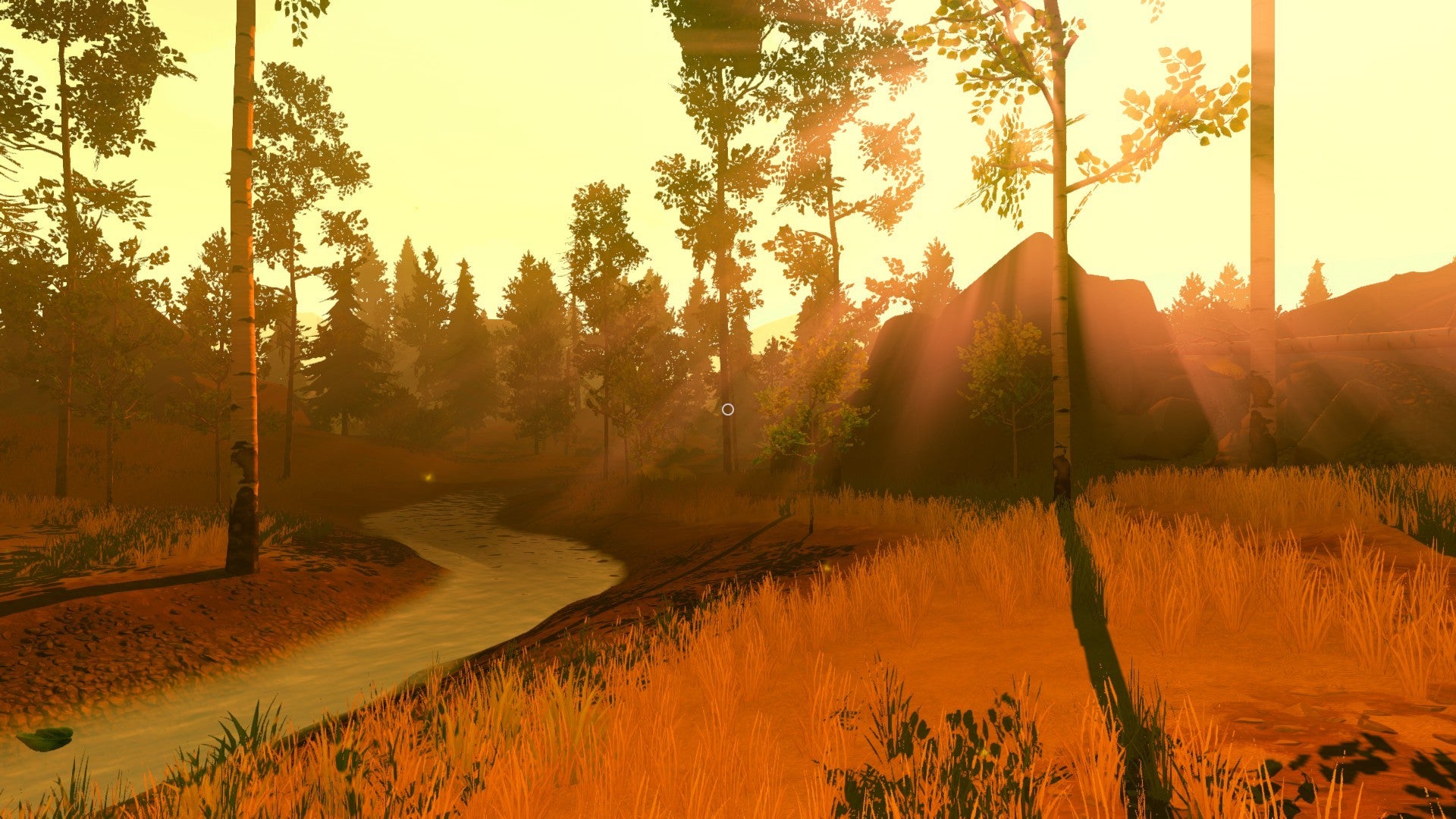

Over the course of time, the two grow quite close and there are inklings of a relationship growing between them amidst all the adversity.

His need for isolation is quite apt here, since he has got no-one to talk to, besides Delilah, his supervisor, and that too, over the radio. His feelings of acute guilt and incompetence lead him to the fire lookout post with the Forest Service. ‘Firewatch’ begins with a tragedy: Julia rapidly succumbs to dementia and her gradual need for full-time care takes her to her parents in Australia. However, ‘Firewatch’ achieves resonance precisely through its anticlimax. Anticlimaxes are widely thought to be repugnant, something that should never be intentionally attempted at the very least. There’s more to that than what meets the eye, but for now, that will suffice. We are clearly told that in the prologue to the game. There is a deliberate attempt on the part of Campo Santo, the developers of ‘Firewatch’, to conspire events in such a way that leaves Henry underwhelmed and dejected, leaving us players dejected because we are Henry. In that same stream of thought, the events of the game also establish how terribly Henry deals with the challenges in his own life. Would Henry have so thoroughly investigated this ‘conspiracy’ had his personal life been a breeze? Would he have even taken up this job if Julia, his wife, wasn’t suffering from dementia? The plot of ‘Firewatch’ is a ruse, a cover for Henry to use as his means of escape. It is precisely because the ending is so underwhelming that we are led to see the story in a new, more mature light altogether.

By the time the game ends, this conspiracy amounts to something quite insignificant. You are put in the shoes of Henry, a fire lookout in the Shoshone National Forest who’s on the verge of stumbling upon an evil conspiracy in the woods. Most of the events that have a significant bearing on the events of the game happen off-screen and outside the entirety of the game’s plot. There are no prizes for guessing that the game is rare, and in more ways than one. (Needless to say, spoilers follow from here onwards) Anticlimax the Antihero Of being in a better position to answer that tantalising question: Perhaps, by making us aware of the futility of what we do, it helps us become more aware of what we want from life. In doing so, perhaps the game does more than it was ever expected to accomplish. That the result seems nothing more than an ordinary man’s attempt to escape the drudgery. That none of those fantastic things came to being. But it all comes crashing down at the end, only for you to seethe in rage, and when calmer, to be disappointed at how it all came to be.
FIREWATCH PLOT FULL
It intrigues you at the beginning, then takes you on a journey full of stunning sights and flights of fancy. We wouldn’t like them to remind us of how deeply flawed our worlds are, nor would we like to know even more about the issues that trouble us.īut maybe sometimes, a game comes along that does precisely those things. By definition, we wouldn’t like our games to hit too close to reality. We play video games as an act of escape from a widespread drudgery that surrounds us to no end. Life is a journey of nightmares and anticlimaxes, but thankfully interspersed with some moments of genuine happiness. Instead, life is mostly made up of a few joys, some more heartbreaks, and a whole lot of sniffles. Storybook happy endings in life happen rarely. In those differences lie who we are, and although we take separate paths and experience disparate consequences for our actions, life invariably finds a way to screw us over anyway. We try to understand what we want, and we behave differently in trying to get to the place we want to go to. But how we would like our lives to be and how our lives actually are, are never the same. In a world where everyone is in a conscious or subconscious flux about how they interpret happiness, we would all like to be happy in some way.


 0 kommentar(er)
0 kommentar(er)
